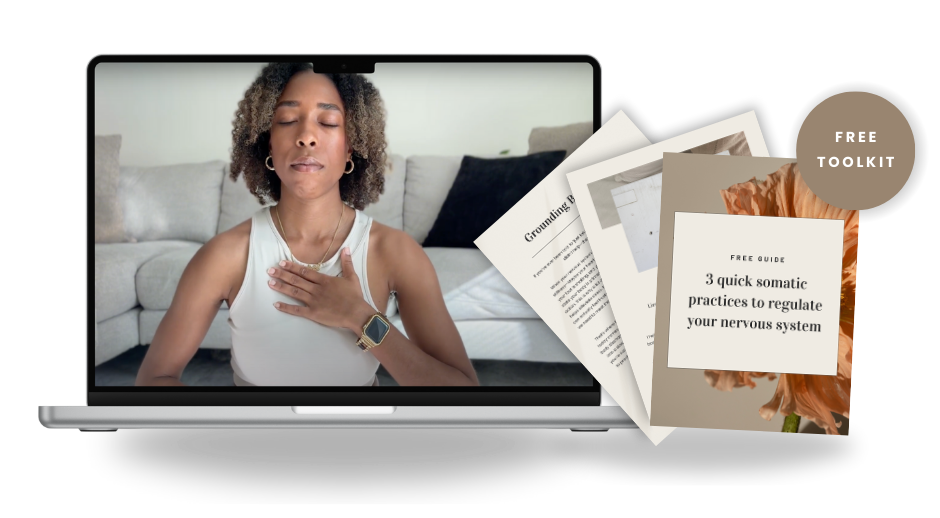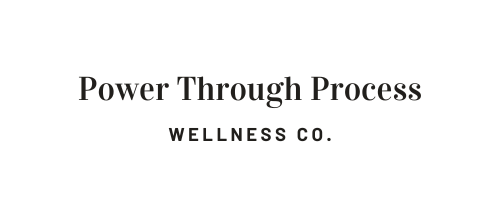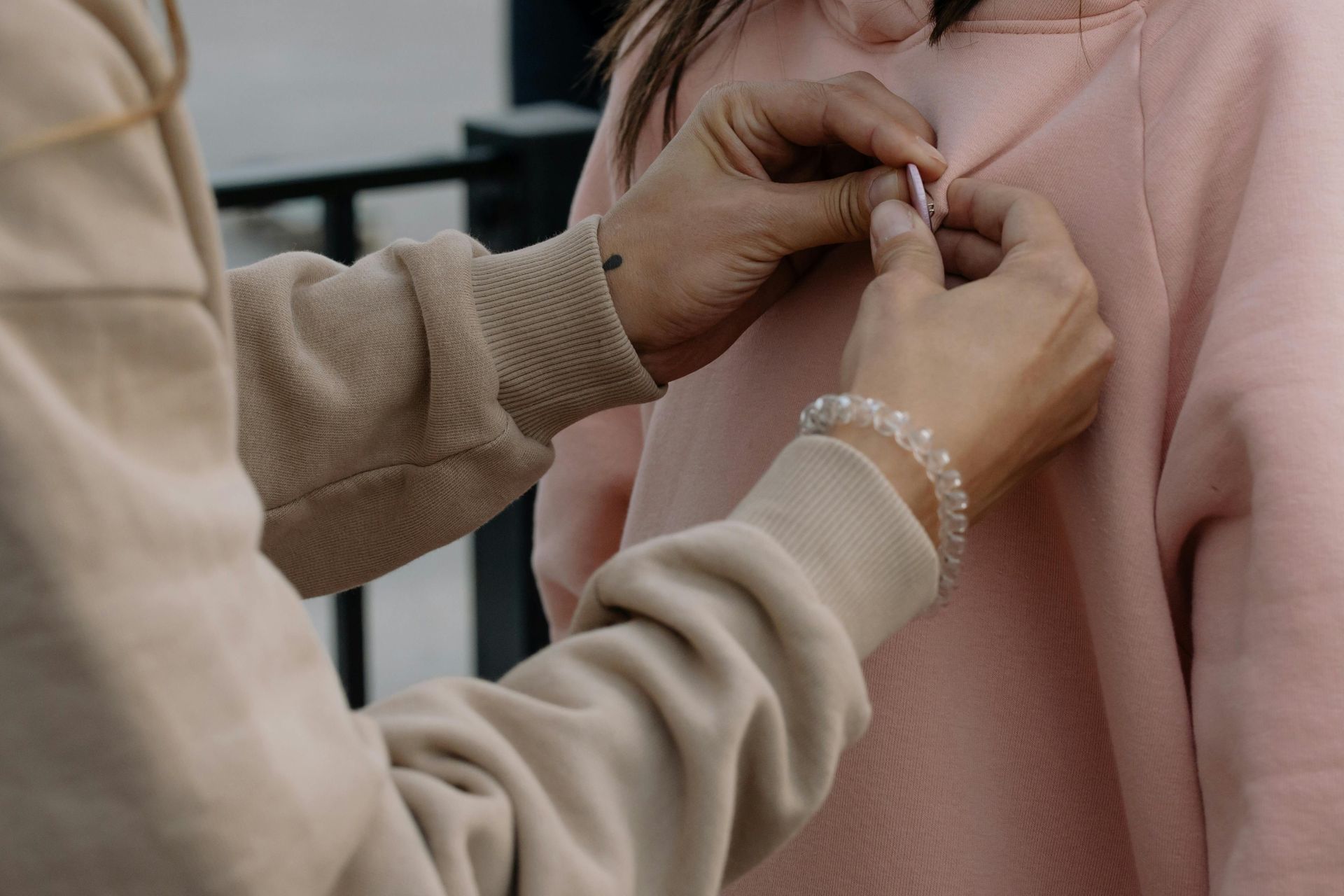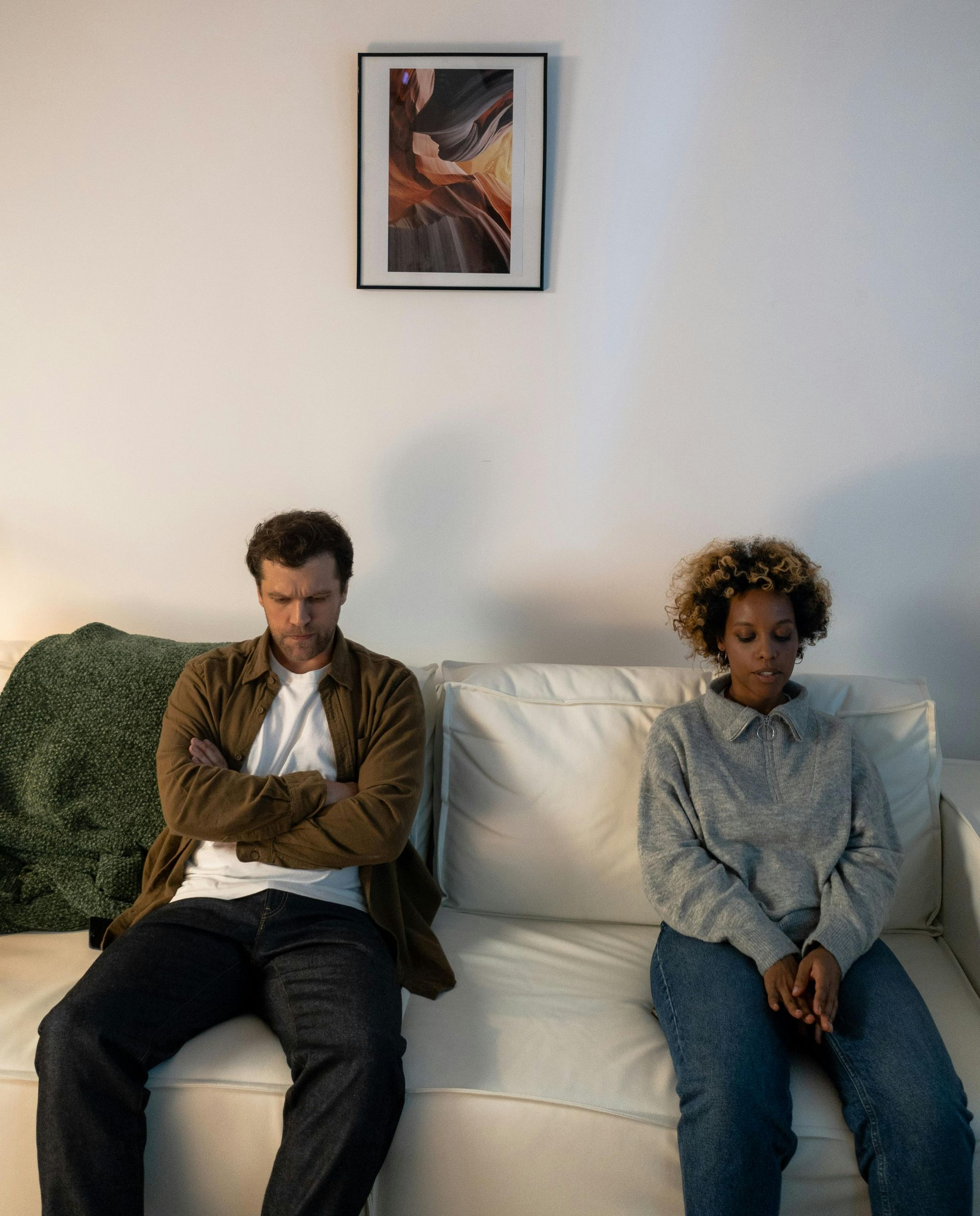When the World Feels Too Heavy: Nervous System Reflections + Resources for Realignment
Understanding your response to global overwhelm and finding your way back to center.

From climate change to humanitarian crises, it can feel like the world is spiraling out of control. Maybe you’ve found yourself feeling angry, helpless, or totally disconnected. If that’s you, I want you to know — you’re not alone. There is a collective grief felt all around the world.
In this post I'll be sharing some insight into what might be happening with the nervous system and invite reflection on how these things may be showing up for you and what can be done about it.
How the Nervous System Responds to Crisis
The way we feel or how we respond to external chaos falls somewhere along the scale of shut down to activation.

There's no right or wrong to whatever you're feeling right now. Our bodies are designed to protect us. That’s why when crisis hits, we might collapse, freeze, fight, or flee. These states aren’t bad — they’re biological. The problem is when we get stuck there.
- Get curious about where you might fall along this scale currently or under certain circumstances.
As humans we have a wide range of emotions and responses all engineered to help us feel safe. Safety and survival are the ultimate primordial needs for living beings. And when those needs are threatened, survival becomes the focus and it can seem like nothing else matters. Things that usually matter a lot can fade into the background: connection, creativity, sleep, nourishment, joy, etc.
Guided Reflection on What Gets Lost in Chaos
We don't even have to imagine what a world with sleep deprived, creatively blocked people would look like. Many of us are living it or witnessing it.
We don't even have to imagine what a world with sleep deprived, creatively blocked people would look like. Many of us are living it or witnessing it.
Take some time to journal or briefly pause to check in about how this may be showing up for you?
- What areas of your life tend to fall out of focus for you when things get chaotic?
- What do you tend to do to help you feel safe?
- Are there people, places, or things that support you?
A Personal Note on Cultivating Safety
Only when you feel safe and connected can your nervous system settle into what we call the Ventral Vagal response. This is where healing, growth, social engagement, and sustainability thrive.
Personally I've been practicing mindfulness around areas of my life I tend to let fall behind. I'm working on tending deeply to my most basic needs so I can function with more ease. I've been engaged in protests, spreading awareness and staying informed while continuously checking in with my capacity and also acknowledging rest as another form of resistance. I've been anchoring into people, spaces, and practices where my nervous system feels grounded and calm. And I've been leaning into gratitude for even small moments of joy and fun, savoring what I can in a constantly shifting world.
Messages of Hope
Is there the possibility for healing and collective care, even in the chaos? I believe so. Nothing in this world is permanent and I think we are seeing the rise of some profound shifts. As disempowering as it can feel at times,
the more we tend to our own well-being, the more capacity we have to show up — for change, for justice, and for each other.
Crisis often triggers radical innovation, coordination, and change. People are questioning and deconstructing long standing systems that don't serve the greater collective. The value in community building and space holding is growing. We have to do the work of taking care of ourselves and each another to get to the Ventral Vagal (Safety & Connection) window. This is where we will be able to imagine and create a better more sustainable future for ourselves.
Practical Tips for Nervous System Care
Take Care of the Basics
If our basic needs are not being met, it will compromise our ability to function effectively. Think of your basic needs as the foundation of a home. If the foundation isn't sturdy, the structure you build on top of it will be wobbly. Check in with your basic needs regularly. Eat when your hungry, sleep when your tired, use the bathroom when you have urge. Be intentional about making time for social connection, movement, health appointments, etc.
Monitor Screen Time
With the rise of technology and social media we are constantly in surplus of screen time and information consumption. Not only does this impact our own cognitive functioning (things like executive decision making, concentration, and attention span), but it also impacts are carcadian rythm which impacts our sleep, and contribute to desensitization. More information and research about the long term effects of screen time and social media use will emerge over time. But we were never meant to have so much information at the tip of our fingers. It is most definitely contributing to information overload, fatigue, and burnout. Monitor your screen time closely, and be intentional about how you use social media. Engage with long form content (youtube videos, podcasts, blog articles, etc.) when possible to avoid dopamine spikes and the crash that follows.
Create a Calm Playlist
Overstimulation in the noise, television, or just overconsumption can make it difficult to concentrate and contribute to feeling untethered. Have a music playlist you can access quickly to help you recenter and quiet the outside noise.
Engage in Movement
Stress and overwhelm lives in the body. When the brain registers safety threats. stress hormones are bumpted throughout the body that manifest as various symptoms like quickened heart rate, shallow breathing, restlessness, numbness, etc. Movements helps complete those stress cycles and give anxious energy somewhere to go.
Create a Safety Plan
Describe the item or answer the question so that site visitors who are interested get more information. You can emphasize this text with bullets, italics or bold, and add links.Take Action Where You Can
It can be easy to fill helpless in moments like these. We may even have preconcieved ideas about what taking action has to look like or about wanting to see immediate results. Taking action involves inspiration and creativity --things that often get deprioritized when it feels like choas is happening. Be patient with yourself as you consider the smallest. simplest act of resistance that you feel called to do;
RELATIONAL AND SOMATIC THERAPIST IN LA
Want to practice these tools in community?
I'll be hosting a virtual space for community dialogue, journaling, and meditation on Thursday, September 25 at 5:30PM PDT/8:30PM EDT. This event is free and open to all.
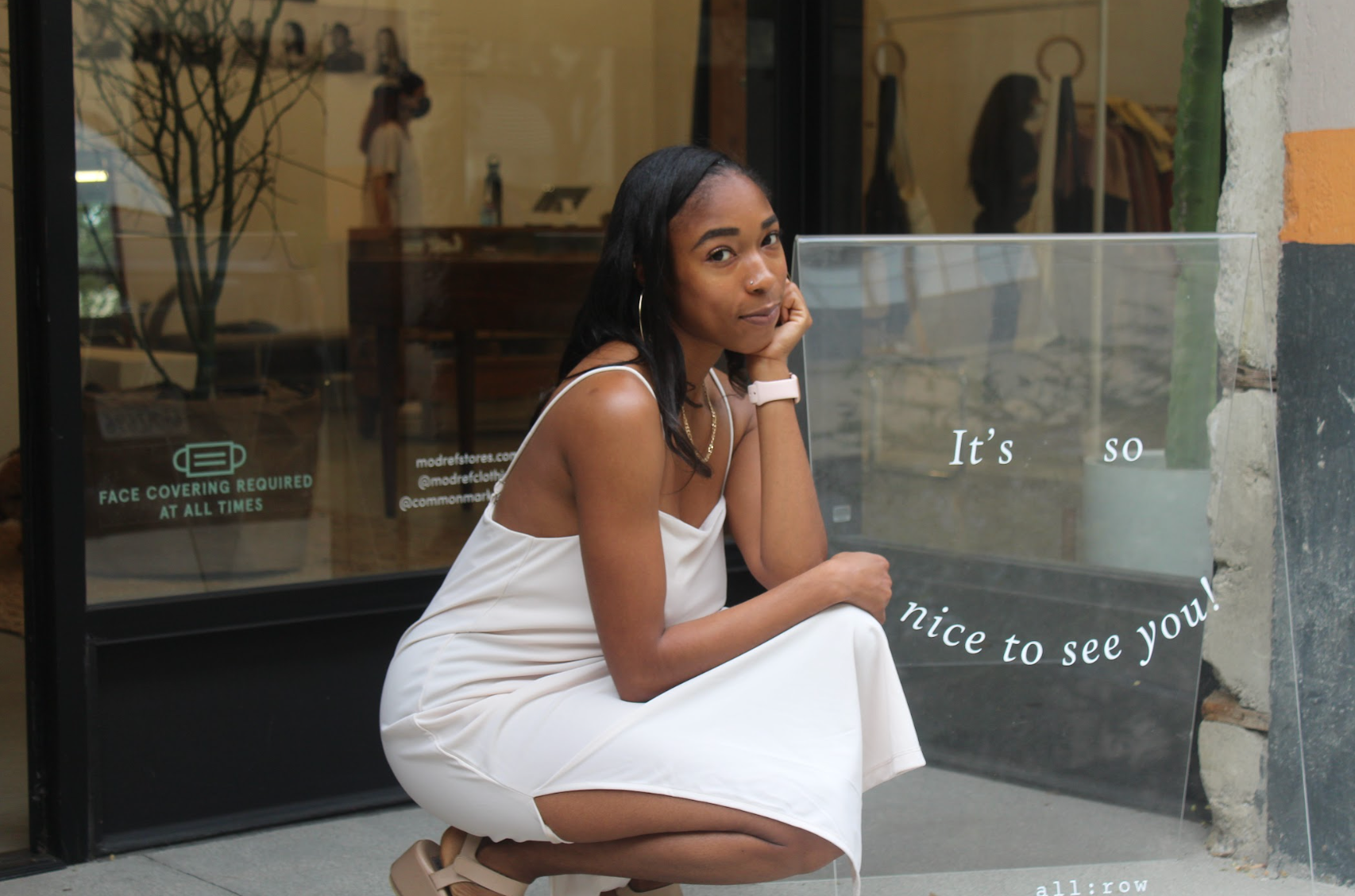
Hello, I’m Chelsey Reese
Licensed Clinical Social Worker, Relational and Somatic Therapist, Certified Sound Healer, and 200HR Registered Yoga Teacher. .
I help people cultivate self-awareness by reconnecting with their bodies, releasing trauma and stress, and fostering deeper connections. I believe true healing comes from processing lived experiences and letting go of what no longer serves us.
Passionate about community and wellness, I create spaces for growth and restoration. When I’m not working with clients, you’ll find me tending to my plants, lost in a book, or hiking in nature.
